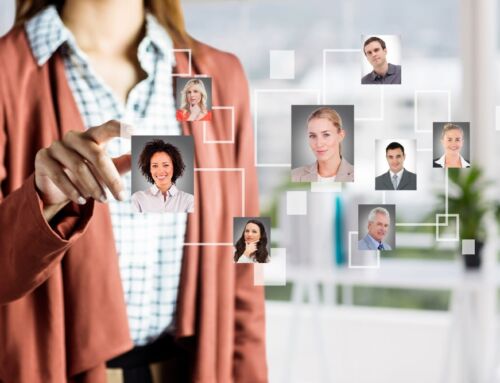Many experts agree on the fact that workplace has changed but HR methods mostly remain the same. The reason is outdated policies and tools used HR professionals that don’t meet the needs of the personnel and don’t support effective workforce decision making.
One solution for solving this critical problem is incorporating human-like intelligence in tools and apps used by HR. These cognitive systems are driven by data and offer a good alternative to human intuition. For example, they can choose the best employees and define their working styles.
Also read: Technology Is Changing Human Resource Management – But Where Will It Go?
In this article, let’s discuss cognitive computing and how it impacts HR.
What is Cognitive Computing?
A leader in the industry, IBM defines cognitive computing as “Cognitive computing systems learn and interact naturally with people to extend what either humans or machine could do on their own.”
These systems can deliver effective analysis of HR processes and learn from both structured and unstructured data. Thus, they can replace HR administrator or contact centers that are currently used by organizations.
Cognitive HR systems also perform some more impressive functions, such as capturing the expertise of the best employees and using it to enhance the performance of other staff members. As the result, data-heavy tasks will be more accurate and easily delivered.
There are four central functions of cognitive computing tools that differentiate them from other HR tools:
- The ability to learn. Given that HR constantly changes, the systems need to learn and improve. Cognitive HR tools deliver exactly that: they can improve by learning outcomes and data.
- The ability to understand. Cognitive computing has remarkable advantage in the form of receiving and processing data in a way similar to human understanding. These tools can recognize and interpret a wide variety of data, including images, text, and voice. For example, a cognitive HR system can analyze hundreds of records of HR department to define key words and phrases based on tone and frequency.
- The ability to interact. The users of cognitive HR systems don’t have to possess some specialized skills to operate them. As the result, people can interact with them using natural language, which is a huge advantage.
- The ability to reason. Suppose a hiring manager needs a cognitive system to select the most qualified candidate for a position within an organization. To choose, the system analyzes different sources of information to define the experience of each candidate and compare them with the expertise of current employees.
Why do Organizations need Cognitive HR systems?
There are two primary factors that explain the need in innovative computing tools in HR. The first one is the increasing complexity of everyday HR operations. “They have become data-heavy and need to be made using statistics and other information,” says Gordan Hayward, an HR specialist and writer from Awriter.org. “Cognitive system can solve this problem because they are designed to operate vast amounts of data.”
The second reason is an increasing demand for talent at all levels. Organizations in all areas need skilled employees, and the problem continues to get worse (see image below). Cognitive systems can help with selecting the most qualified candidates at the right time.
Percentage of global employers in need of talent via ManPowerGroup
In other words, these factors will contribute to future incorporation of cognitive HR systems in organizations. As the result, HR will become more effective and efficient because managers and supervisors will be provided with real-time employee data embedded in easily accessible cloud-based solutions and apps.
Talent acquisition will also get a boost from cognitive computing tools. They have an advanced ability to search and track talent, so all operations will become more effective and efficient as well. Of course, there is no way these tools can totally replace HR but they will certainly change the essence of the recruitment role.
Sweet Spot for Cognitive HR
Having reviewed cognitive computing and its advantages for organizations, we can now finally move on to success factors. The organizations adopting these systems will need to focus on them to gain the most benefits. It can be said that these factors are the “sweet spot” because they will have the most positive impact on organizations.
So, to gain the benefits of cognitive computing, the organizations need to use them:
- To make decisions that rely on vast amounts of data from different sources
- To make decisions that rely on high volumes of both structured and unstructured information and data (pictures, text, and audio)
- When the output of a decision need to be individualized and customized to meet the needs of a diverse personnel
- When a decision maker needs to interpret and address a large number of requests
By applying cognitive HR solutions in these instances, organizations will transform the way HR performs its roles. Of course, learning cognitive computing will take some time but the benefits of this innovation will be worth it.
The Bottom Line
The use of cognitive HR solutions continues to receive attention. By taking advantage of these innovative systems, organizations can support workforce decision making in a more effective and efficient way. The global talent shortage will only contribute to an increased tole of cognitive HR in the future.
Download the white paper and see how you can create an integrated, engaging employee experience using people analytics!
About the author
Lucy Benton is a marketing specialist, business consultant who finds her passion in expressing own thoughts as a blogger. She is constantly looking for the ways to improve her skills and expertise. If you’re interested in working with Lucy, you can find her on Facebook and Twitter.
Image via Pexels.com







Leave A Comment